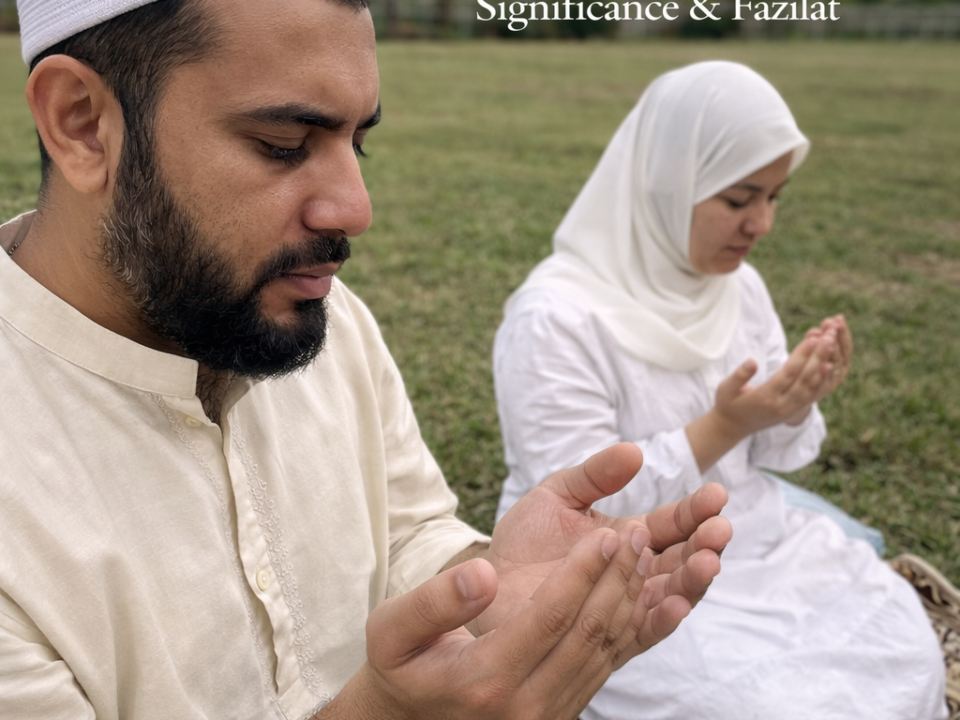Roza aur Sehat – Fasting and Health: The Connection Between Science and Islam
- Benefits of fasting in Islam
- Fasting
- Fasting and Health
- Fasting and weight loss
- Health
- Health benefits of Roza
- Intermittent fasting benefits
- Ramadan
- Ramadan and immunity
- Ramadan diet tips
- Ramadan health benefits
- Ramadan nutrition tips
- Roza
- Roza aur Sehat
- Roza aur sehat ke faide
- Taj Company
- Taj Company Quran Ramadan guide
Roza aur Sehat (Fasting and Health) has been a subject of deep reflection in both Islamic teachings and modern scientific research. While the Qur’an emphasizes fasting as a means of attaining taqwa (piety), science has uncovered many physical and mental health benefits linked to fasting. In this article, we will explore the spiritual wisdom of fasting, the scientific evidence of its health benefits, practical dietary guidance for Suhoor and Iftar, and safety precautions for people with medical conditions.
The Spiritual Foundation of Fasting in Islam
Fasting in Islam is far more than abstaining from food and drink; it is a comprehensive act of worship meant to purify the soul, discipline the body, and foster empathy.
Read More : Ramzan aur Ilm – Taleem o Tarbiyat ka Mahina
Spiritual Benefits
- Builds self-control and patience.
- Increases empathy for the poor and needy.
- Enhances focus in prayer, Qur’an recitation, and remembrance of Allah.
- Promotes gratitude and humility.
For centuries, Islamic scholars, including those whose works are published by Taj Company, have highlighted fasting as a transformative act for both the soul and the body.
Scientific Insights: The Health Benefits of Fasting
Modern research has found that fasting practices, including Ramadan fasting and intermittent fasting, can have significant health benefits. These benefits vary depending on individual health, diet quality, and lifestyle.
Proven Health Effects
- Weight Management: Studies show fasting helps reduce body fat and weight when combined with a balanced diet.
- Blood Sugar Control: Ramadan fasting can improve insulin sensitivity and regulate blood sugar.
- Heart Health: Fasting may lower cholesterol levels and reduce risk factors for cardiovascular diseases.
- Reduced Inflammation: Some studies suggest fasting lowers markers of inflammation, which are linked to chronic illness.
- Cellular Repair: Fasting may support processes like autophagy, helping the body remove damaged cells.
(Sources: Mayo Clinic, Nature Scientific Reports, Lancet eClinicalMedicine)
Balancing Faith and Health: The Boundaries of Fasting
Although fasting has potential health benefits, it is not suitable for everyone. Islam allows exemptions for the sick, elderly, pregnant, or those whose health may be at risk.
Safety Notes
- People with diabetes or heart conditions should consult their doctors before fasting.
- Pregnant or breastfeeding women should seek medical and religious advice.
- Elderly or frail individuals may choose alternative forms of worship if fasting is harmful.
This balance reflects Islam’s compassion — fasting should be a source of spiritual growth, not physical harm.
Suhoor and Iftar: Practical Dietary Guidelines
The quality of food eaten during Suhoor and Iftar plays a vital role in determining whether fasting benefits or harms health.
Suhoor Tips
- Protein-rich foods: Eggs, lentils, yogurt — to keep you full for longer.
- Slow-digesting carbs: Oats, whole wheat bread, or brown rice for sustained energy.
- Hydration: Drink 2–3 glasses of water, and avoid salty or overly sweet foods.
Iftar Tips
- Start light: Break your fast with dates and water, as per Sunnah.
- Balanced meals: Include vegetables, lean proteins, and healthy carbs.
- Avoid excess: Limit fried foods, sugary desserts, and heavy meals that cause fatigue.
Fasting for Special Groups
Islam and modern medicine agree that not all people should fast in the same way.
- Diabetics: May need adjusted medication schedules — professional consultation is essential.
- Pregnant women: Should fast only if medically safe; otherwise, alternatives exist in Shariah.
- Elderly: May replace fasting with charity if their health does not permit.
Mental and Emotional Health Benefits
Beyond the physical, fasting also has psychological and emotional benefits. Many Muslims report a sense of inner peace, focus, and discipline during Ramadan. Regular worship, Qur’an recitation, and mindful eating contribute to reduced stress and improved mood.
A Quick Health Checklist for Taj Company Readers
For visitors of quraan.pk and followers of Taj Company’s publications, here’s a practical checklist for fasting safely:
- Consult a doctor if you are on long-term medication.
- Prioritize hydration between Iftar and Suhoor.
- Get enough sleep to balance energy levels.
- Use moderation at Iftar to avoid indigestion.
- Explore Ramadan Qur’an editions at quraan.pk for spiritual guidance alongside physical care.
(Internal link suggestion: https://quraan.pk/collections/ramadan)
Conclusion: Balance and Wisdom
The relationship between Roza aur Sehat (Fasting and Health) is a blend of spiritual wisdom and scientific discovery. Islam teaches that fasting nurtures the soul and builds piety, while science shows it can improve health when practiced correctly.
With proper Suhoor and Iftar planning, medical awareness, and spiritual dedication, Ramadan becomes not only a month of worship but also a journey towards holistic well-being.
Call to Action:
For authentic Qur’an editions and Ramadan guidance, visit quraan.pk and explore Taj Company’s publications that enrich both your faith and lifestyle.




